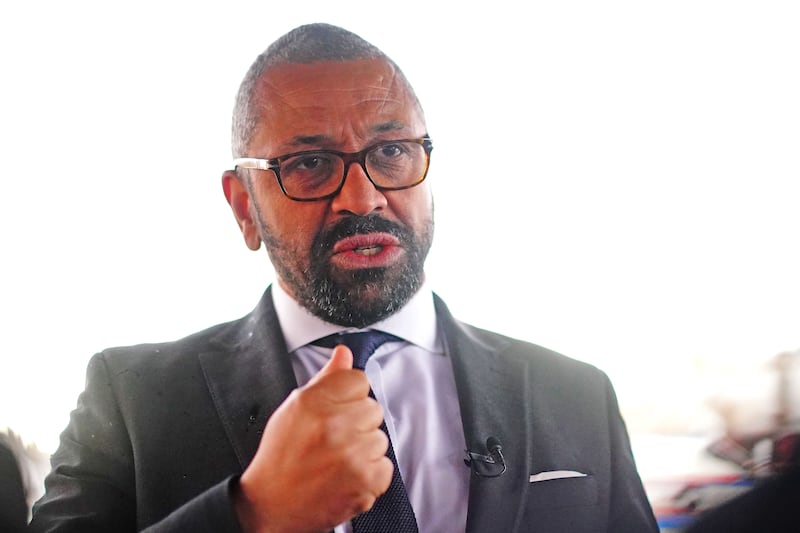Reducing the number of international students coming to the UK would be “calamitous”, a senior university leader has insisted.
Such a move could harm the economy, skills and jobs, Professor Dame Sally Mapstone, president of Universities UK (UUK), has said, branding such a move “unnecessary”.
In March, Home Secretary James Cleverly asked for a review of whether the graduate visa route is “undermining the integrity and quality” of the higher education system.
A report from the review is due to be received by the UK Government.
The professor, who is also principal and vice-chancellor of the University of St Andrews in Scotland, made her comments on the Sunday Morning With Trevor Phillips programme on Sky News.
Sir Trevor asked: “It’s being said that because of their concerns about overall immigration numbers, (the Conservatives) want to reduce the number of international students. Is that an issue for you?”
Dame Sally said: “It is a very big issue for us. International students are incredibly important to UK culture.
“They contribute a huge amount to universities, to the economy, to skills and jobs and we think it would be a tragedy, calamitous not just for institutions but actually for the UK as a whole, if the Government took what would actually be quite unnecessary further action to restrict the number of international students coming into the UK.”
A Government spokesperson said: “We must strike the balance between acting decisively to tackle net migration and attracting the brightest students to study at our universities.
“In December, we announced an independent expert review of the graduate route to prevent any abuse and ensure it is working in our interests, attracting and retaining the best talent.
“We are providing significant financial support of nearly £6 billion per year to the higher education sector, plus more than £10 billion per year in tuition fee loans.”

In March, Mr Cleverly wrote to the Migration Advisory Committee (MAC), to assess if the graduate visa route – which allows overseas graduates to stay in the UK for two or three years after graduation – is supporting the UK to attract and retain “the brightest and the best”.
He said he wanted to ensure that the graduate route was “not being abused” and that some of the demand for study visas “is not being driven more by a desire for immigration rather than education”.
University leaders warned in February that the Government could “damage” the economies of towns and cities with policies which deter international students.
UUK suggested that uncertainty over the Government’s commitment to the UK’s post-study work offer is affecting the decision-making of prospective students.
Tory peer Lord Jo Johnson, the former universities minister, has also called for the Government not to make cuts to international student numbers, calling the idea “self-defeating”.
He said: “Slashing the graduate route would set back so many important Government policy priorities: Global Britain, levelling up, exports, science superpower. It’s hard to think of a policy more self-defeating, and all for what? To lower immigration stats which international students shouldn’t be part of anyway.
“The sooner they are treated as migrants only when they actually indicate an intention to immigrate by applying for the graduate (visa) or a skilled economic work visa, the better.
“In a rational world, overseas students would be treated as temporary residents or tourists, with which they share many characteristics.”
Dr Tim Bradshaw, chief executive of the Russell Group of leading research universities, said: “International students are hugely valued as part of our university community, not only for their contributions to our local and national economies, but also their significant social and cultural benefits – including long-lasting soft power on the global stage.
“Placing further restrictions on them doesn’t make economic sense and will have a direct, negative impact on UK students.”








